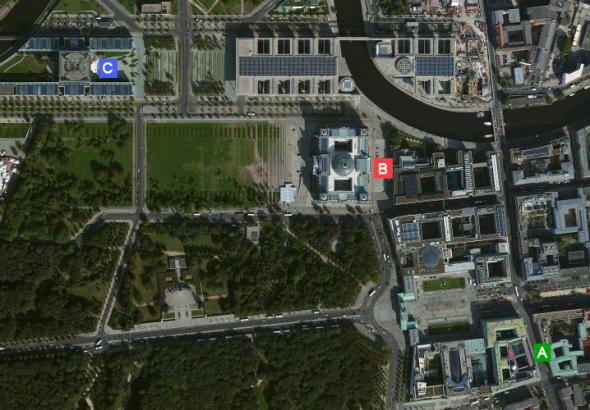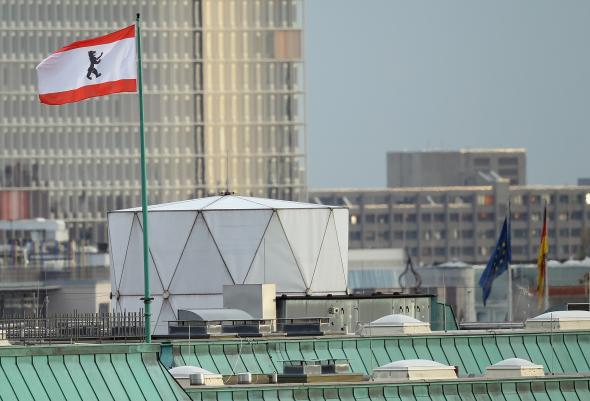The United States has already felt the wrath of German Chancellor Angela Merkel over the scope of its spying programs. Now it could be the United Kingdom’s turn.
Late Monday, British newspaper the Independent reported that U.K.’s version of the NSA, Government Communications Headquarters, appears to be operating a clandestine snooping base in the heart of Berlin. The spying station is believed to be located on the roof of the British Embassy, within a mile of the German parliament and Merkel’s offices.
Recent revelations about the U.S. government’s covert surveillance of German communications have sparked outrage in Germany, with the government there demanding that the spying stop. Merkel’s administration has reportedly reached a “no spy” deal with the United States, and the Independent claims that a Berlin surveillance station operated by the CIA and the NSA is believed to have abruptly shut down last week. Meanwhile, the alleged British spy base has continued operating—but perhaps not for much longer.
On Friday, the German foreign ministry said that it had summoned the British ambassador and “asked for an explanation of current reports in British media and indicated that tapping communications from a diplomatic mission would be a violation of international law.” The U.K. government is refusing to comment and is likely hoping that the story will quickly go away.
Similar covert stations are believed to be operated by the NSA and GCHQ at diplomatic bases around the world. According to documents leaked by NSA whistle-blower Edward Snowden and reported on by the Independent, the sites are small and their purpose well concealed. “They are covert, and their true mission is not known by the majority of the diplomatic staff at the facility where they are assigned,” one secret NSA briefing paper reportedly states.
The alleged British spying hub in Berlin is hardly inconspicuous. Although it is invisible from street level, it is easy to spot it on satellite imagery. The station is a white, cylindrical, tent-like structure that the Independent report says “would be capable of intercepting mobile phone calls, wi-fi data and long-distance communications across the German capital, including the adjacent government buildings such as the Reichstag and the Chancellery clustered around the Brandenburg Gate.” The close proximity of the spy station to the German government offices can be seen below (“A” is the site of the suspected U.K. spy site, “B” the German parliament, and “C” Merkel’s offices at the Chancellory):

Screen shot from Bing Maps
Snooping on foreign politicians’ communications is supposed to be barred under the Vienna Convention on Diplomatic Relations*, a 1960s customary international law that is signed and ratified by more than 180 countries, including the United States and the United Kingdom. But as the Snowden revelations have shown, the Vienna Convention has been egregiously violated on a regular basis by GCHQ and the NSA. It’s probably safe to assume that many other spy agencies are guilty of similar behavior—China and Russia most probably leading the way—and the British government is certainly operating under that assumption. The country’s government ministers have reportedly been issued with “soundproof lead-lined boxes” in which to place their phones when having sensitive conversations. The fear is that the phones could be infiltrated by a spy Trojan—a snooping tactic that, of course, GCHQ knows a thing or two about.
Correction, Nov. 5, 2013: This blog post originally referred to the Vienna Convention on Diplomatic Relations as the Vienna Convention of Diplomatic Relations.
